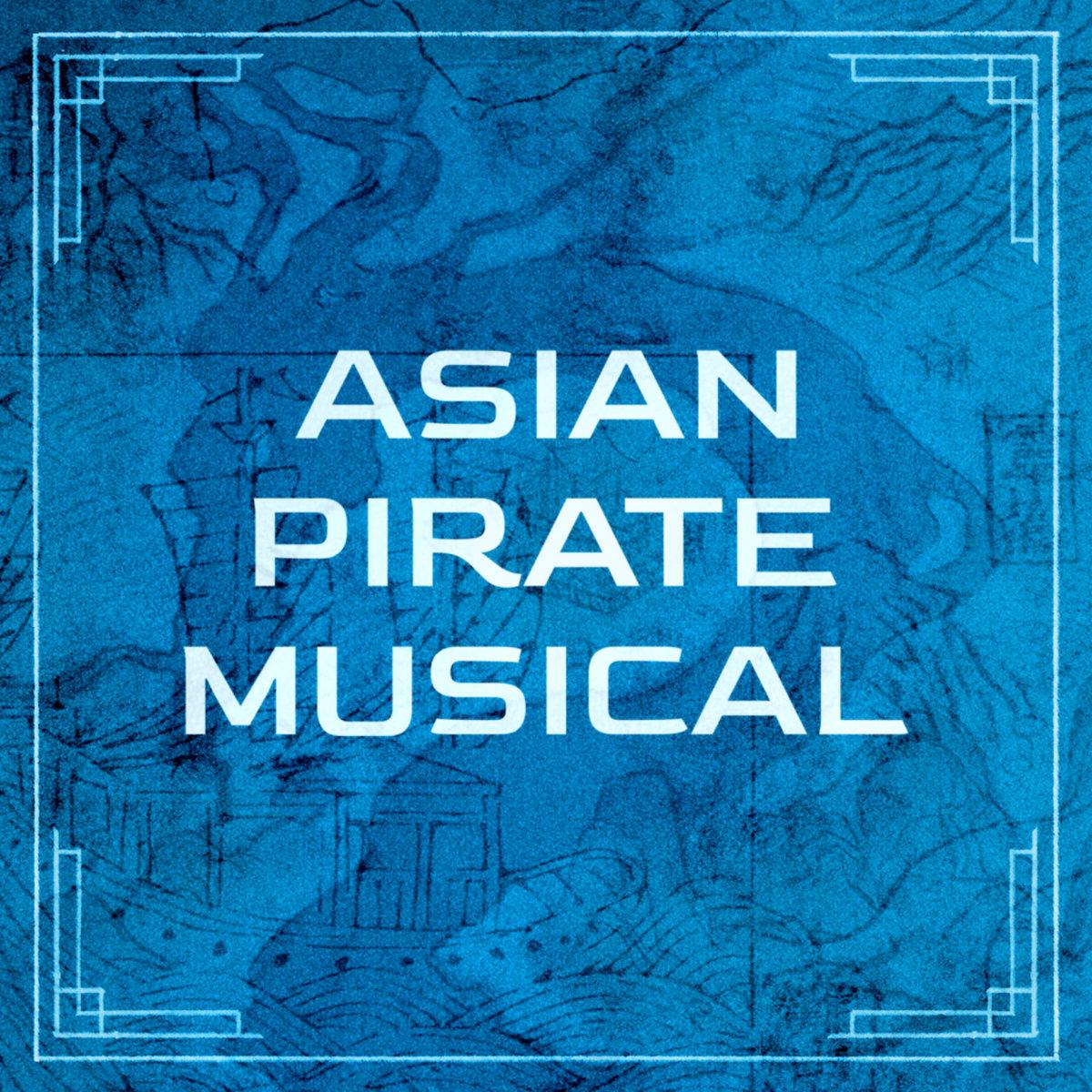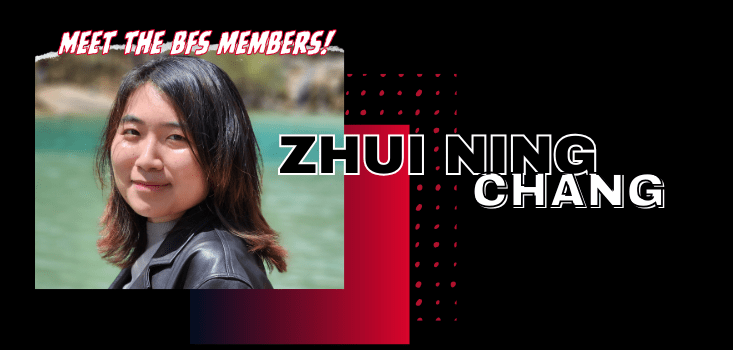Every Friday, we meet a member of the BFS and peer deep into their soul (or, at least, a form they filled out). Want to be featured? Email us: online@britishfantasysociety.org
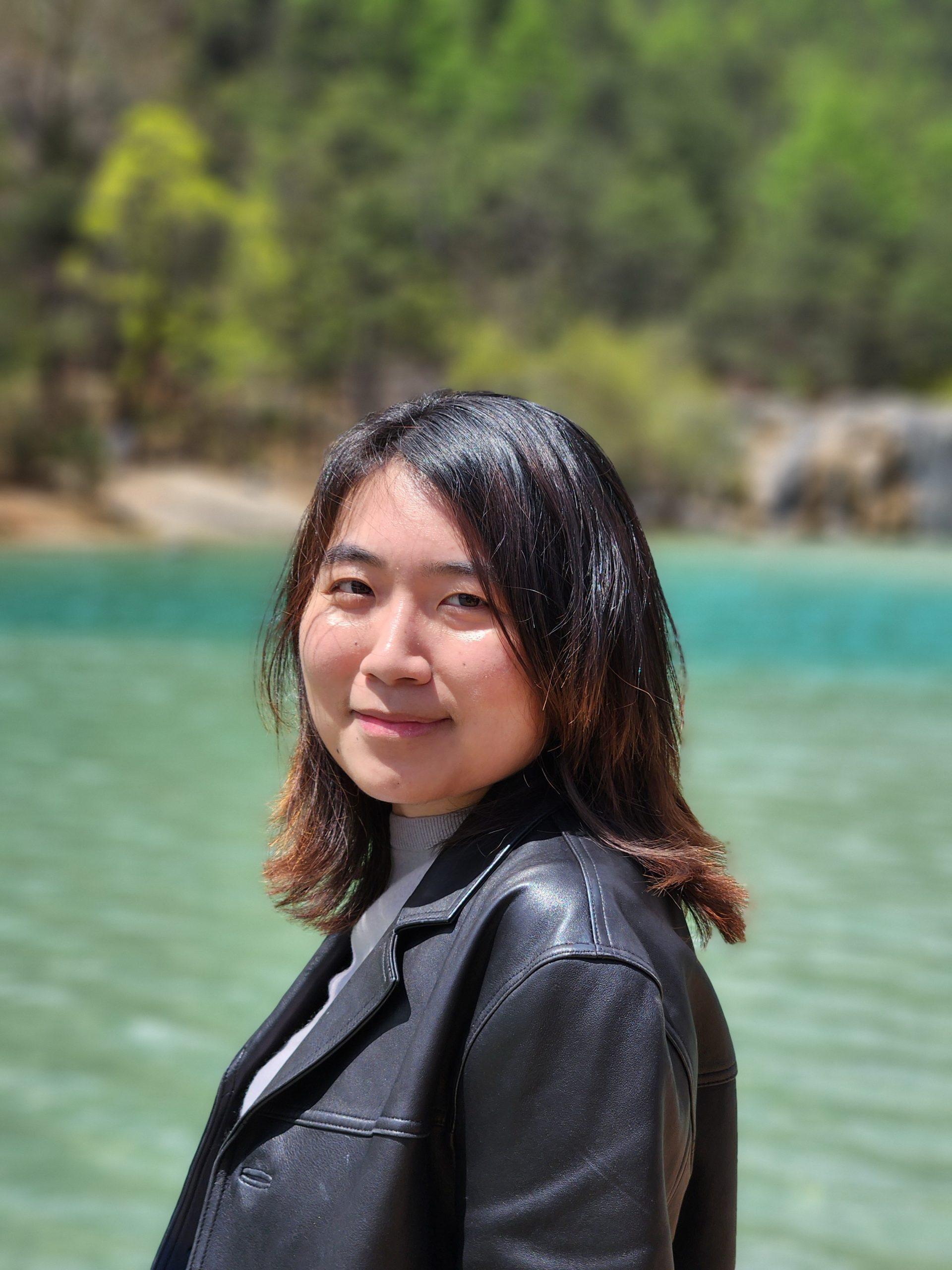
Name:
Zhui Ning Chang (she/they)
Which region are you based in?
I’ve lived in London for almost a decade, but am originally from Johor, Malaysia.
If you write, which genre:
Fantasy & science fiction
If you don’t write, what do you do?
Primarily I’m an editor, as well as a translator, theatre maker, and researcher. I’m the editor-in-chief at khōréō, a magazine of speculative fiction and migration, and I work as a freelance editor for various publishers.
Are you drawn to any specific SFFH sub-genres?
Dark and historical fantasy. And anything to do with mysteries, political intrigue, time travel, piracy and the ocean.
Your influences
Tell us about the book/film/thing that got you into SFFH: What was it? How old were you? What impact did it have on you?
As a child, I devoured all the epic fantasy that my local bookshop stocked: Tolkien, Lewis, Le Guin, Anne McCaffrey, Tamora Pierce, Trudi Canavan, Margaret Weis and Tracy Hickman. That sense of adventure and epic worldbuilding carried me through life in a small town. I was also a huge fan of manga and anime, especially the fantastical works of Hayao Miyazaki – Nausicaa of the Valley of the Wind and Princess Mononoke were particular favourites. And Kohaku from Spirited Away is the root of my lifelong love for dragons.
I fell out of SFF for years because I grew bored with the selections available at the bookstore, many which felt like Tolkien rip-offs and didn’t offer anything fresh or exciting. Then, I discovered Zen Cho’s short story collection Spirits Abroad. It was the first time I’d ever read a Malaysian SFF book, and it rewrote something fundamental in me to see locations, names, habits of speech, and more that I knew from my own life, now recast in an SFF light. Spirits Abroad felt like a warm hug that showed me not only what the genre could be but where I might find a space for myself in it.
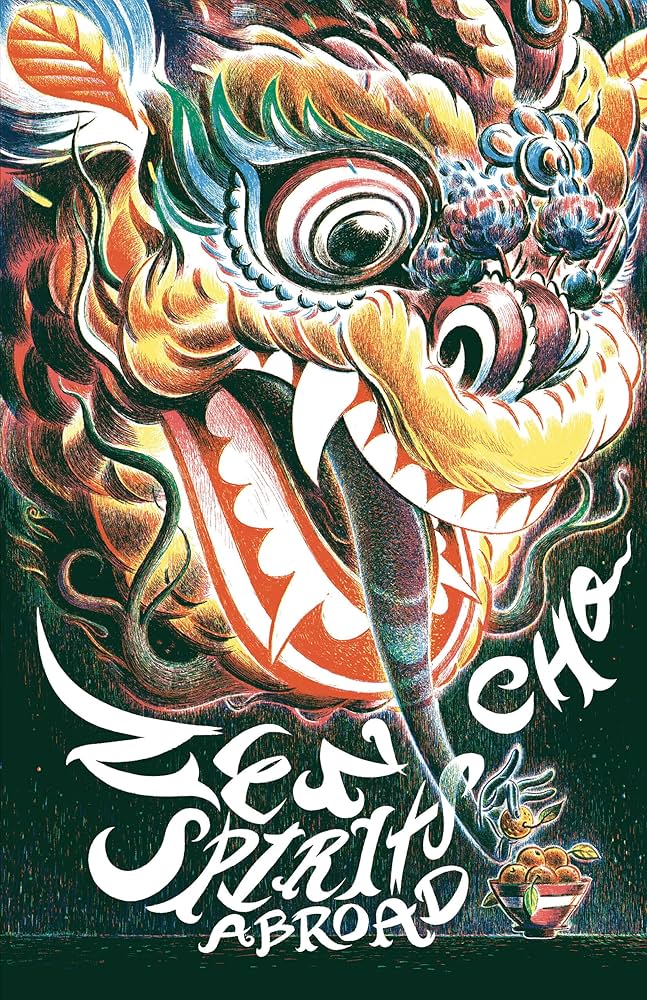
How does that early influence show up for you (in life/writing/agenting/publishing/editing/reading) now?
At khōréō, we uplift and celebrate stories from writers who are between here and elsewhere, whose identities and storytelling have been shaped by immigration, diaspora, colonisation, displacement and border violence. I aim to create spaces, both at the magazine and in my wider work, for those who fall in the cracks of SFFH and who are dreaming of kinder, stranger worlds for us to exist in safely.
In my own creative work, my thematic interests are often shadowed by Miyazaki’s explorations of ecological devastation and his focus on relationality between different communities and different worlds. I’m also drawn to stories where conflict is not the major plot driver or its climatic resolution, and find it interesting to write different ways of generating movement through a narrative that are not centred on conflict.
Where do you draw your creative inspiration from?
Chance encounters and hearing about people’s esoteric interests and what they are creating and what they care about, it leads me down all kinds of fascinating rabbit holes. Also, seeing stories in other mediums, especially animated work which has blown me away with its quality over the last decade (just look at Spiderverse, Castlevania, Nezha, I Am What I Am, etc.) and always challenges me to ask why I am telling a story in a particular form and medium.
Like many SFFH writers, I look at something and wonder “What if…?” and see where that takes me. I also draw inspiration from SFFH for my theatre work and vice versa. For instance, I applied my love of time travel and my wonder/fear of the ocean to theatre and created Asian Pirate Musical, a show where queer time-travelling Asian pirates from the historical past and space futures crash-land on a ship in a climate apocalypse twenty-first century and have to work together to survive and become a crew.
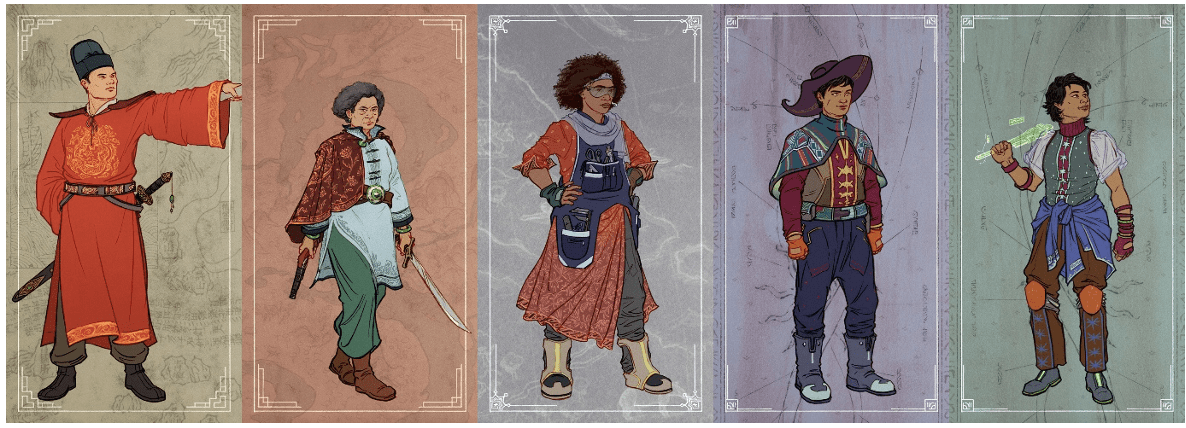
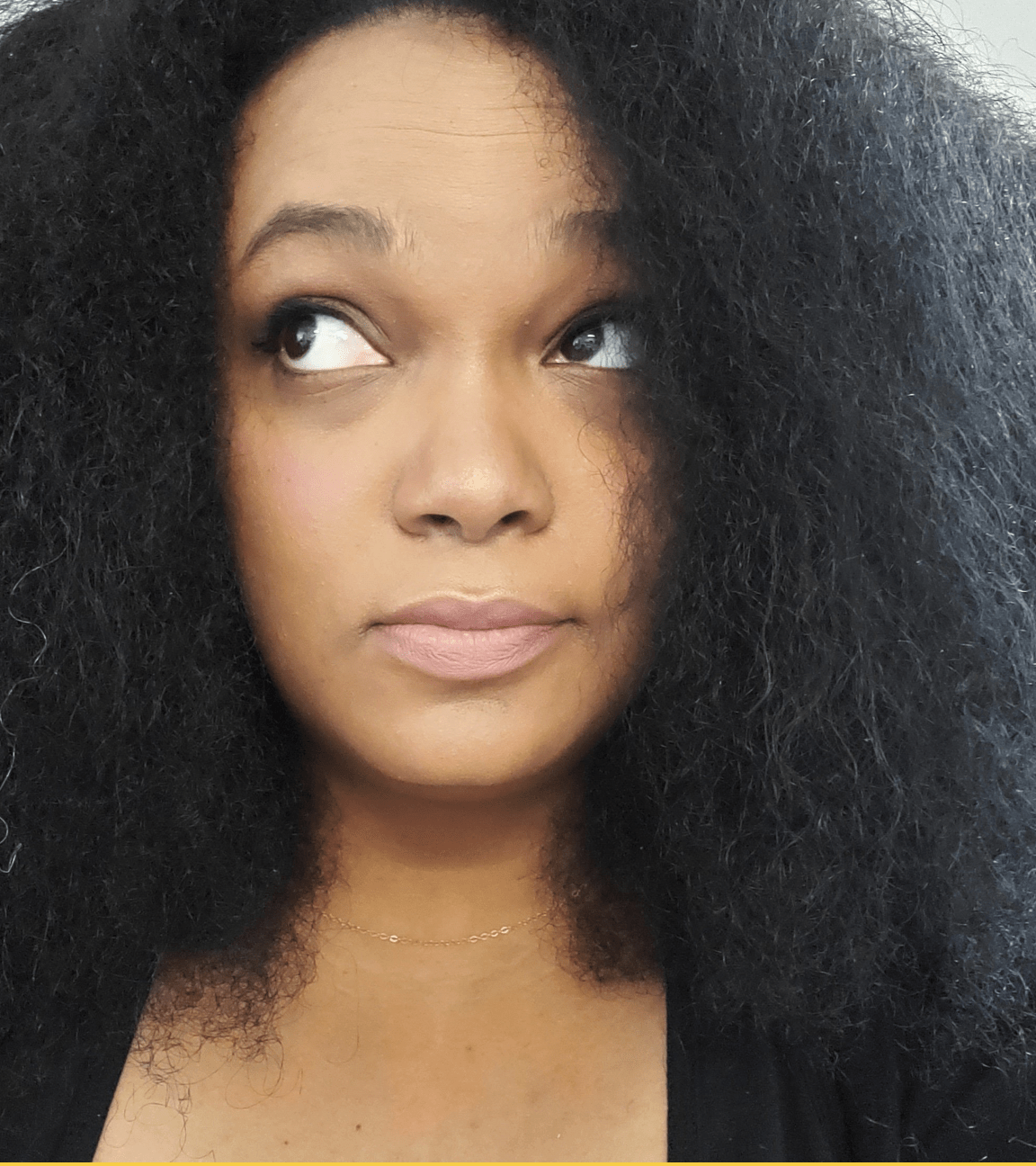
Who do you look to as a genre hero? Why?
L.D. Lewis (pictured) – she’s a brilliant community organiser who has done so much to break down barriers for marginalised communities in SFFH. I don’t know where she finds the time and energy but I deeply admire it and hope to do the same for others someday. Plus, she’s written a book about sea witches and I never say no to a watery story!
Your Work
You’re stuck in an elevator for 60 seconds with that hero, and they want you to describe your work. Give us the pitch.
I wear a lot of hats across my work, but at heart all my stories are about exploring strange in-between spaces, moving across borders, and dreaming into existence a world in which many worlds co-exist.
What are you working on right now?
Finishing up several independent editorial projects and working through July submissions for the magazine. I’m also in the final year of my PhD on decolonial Southeast Asian SFFH, so there is a lot of academic writing in my next twelve months.
In my creative work, I’ve recently fallen down a rabbit hole of SFF mysteries and am trying my hand at a steampunk detective and criminal, cat and mouse narrative. I’ve spent the last few years writing about pirates, the high seas, and small ghoulish spirits, so this is quite different in flavour and rhythm. It’s a nice break from everything else!
Thinking about all the stories/work you’ve done, what sticks out most in your mind? Why?
When writers tell me that they’ve had a fantastic time collaborating and that their piece is so much stronger for the work we’ve done together.
As an editor, I strive to help writers tell the best possible version of their story and to facilitate a space where they feel empowered and supported in the production process. This is especially the case at the magazine, where it is not uncommon for us to work with debut authors or writers who have never had a professional editor. It gives me the best sense of fulfilment to see how far a story has come and to share in a writer’s joy at what they’ve achieved.
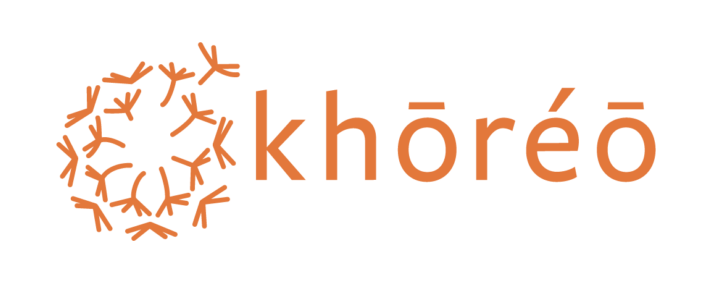
Where and when do you create/are you at your most creative?
Mornings at my desk, after a glass of something cold and sharp, or late at night when everything has fallen quiet.
What’s the best advice you’ve received about creativity?
Anne Bogart gave a talk once where she said curiosity is a muscle, and we have to exercise it through respect for each other and continuously playing and discovering and learning.
What’s your writing soundtrack?
Film and video game soundtracks or music covered in a language I don’t speak, so it has just enough familiarity to keep me focused but doesn’t distract me from the writing. Currently listening to a lot of Animenz, marasy8, WhiteBox123, The First Take, Korean musical theatre, and different covers of Elisabeth das Musical.
The Quick-Fire Round
Sci-fi, fantasy or horror?
Fantasy.
Quiet or loud?
Quietly intense.
Dark or light?
Dark.
Strict lines or genre blend?
Genre blend, genre breaking!
Awards or bestseller?
Both. I like to know what shows up in each category and what it reflects of reader tastes at that time.
Fiction or non-fiction?
Both.
Poetry or prose?
Prose.
Plotter or pantser?
Plotter in every aspect of my life except fiction writing, where I’m an absolute pantser.
Reading or listening?
Reading.
Notebook or computer?
Computer. Just because I’m terrible at remembering what I’ve written down, and it’s easier to find it again on my computer.

Favourite SFFH book of all time?
After the Dragons by Cynthia Zhang, it was such a queer and quietly devastating read. And The Winter of the Witch by Katherine Arden and Ninefox Gambit by Yoon Ha Lee come in close behind.
Last book you read?
Taiwan Travelogue by Yang Shuang-zi, translated by Lin King.
Any SFFH author on auto-buy?
I will read anything that Zen Cho and N.K. Jemisin write.
Favourite podcast?
I don’t listen to podcasts much but have greatly enjoyed the Strange Horizons podcast ‘Critical Friends’.
The Home Stretch
What’s the best thing about being part of the SFFH community?
Meeting and making friends with incredibly cool folks, who seek to uplift and support each other. I love that we are all one foot in other worlds and that collectively we might dream some of those worlds into existence.
Time to plug your stuff! Where can we find you and your work? What have you got coming up? Consider this your advertising space.
The studio cast recording of my musical, Asian Pirate Musical, has just been released! You can listen on all major streaming services or support us through purchasing it on Bandcamp.
The SFF magazine I run, khōréō, features incredible short stories in English and in translation that you can read largely for free (stories are un-paywalled about 2-3 months after initial publication): khoreomag.com
You can find me and my work here:
- Website and editing portfolio: zhuiningchang.com
- Instagram: @witchywonderer
- BlueSky: witchywonderer
